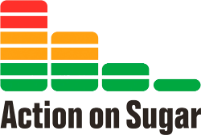Sugary drink consumption and risk of cancer: results from NutriNet-Santé prospective cohort
Research released today in the British Medical Journal suggests that people consuming just under 200ml on average of a sugar-sweetened drink or fruit juice each day had an 18% increased risk of all types of cancer.
Researchers acknowledged that their findings showed an association but could not prove that sugary drinks definitely caused cancer.
The study analysed data from 101,257 people who were aged 42 on average at the start of the study and were typically followed up for five years.
Dr Kawther Hashem, Nutritionist and Campaign Lead at Action on Sugar says: “The study presents some interesting findings in association with cancer but not directly linked. We must remember there are still many other more definite links between sugary drinks and ill health and consumers need to cut back on sugar regardless”.
Abstract
Objective: To assess the associations between the consumption of sugary drinks (such as sugar sweetened beverages and 100% fruit juices), artificially sweetened beverages, and the risk of cancer.
Design: Population based prospective cohort study.
Setting and participants: Overall, 101 257 participants aged 18 and over (mean age 42.2, SD 14.4; median follow-up time 5.1 years) from the French NutriNet-Santé cohort (2009-2017) were included. Consumptions of sugary drinks and artificially sweetened beverages were assessed by using repeated 24 hour dietary records, which were designed to register participants’ usual consumption for 3300 different food and beverage items.
Main outcome measures: Prospective associations between beverage consumption and the risk of overall, breast, prostate, and colorectal cancer were assessed by multi-adjusted Fine and Gray hazard models, accounting for competing risks. Subdistribution hazard ratios were computed.
Results: The consumption of sugary drinks was significantly associated with the risk of overall cancer (n=2193 cases, subdistribution hazard ratio for a 100mL/d increase 1.18, 95% confidence interval 1.10 to 1.27, P<0.0001) and breast cancer (693, 1.22, 1.07 to 1.39, P=0.004). The consumption of artificially sweetened beverages was not associated with the risk of cancer. In specific subanalyses, the consumption of 100% fruit juice was significantly associated with the risk of overall cancer (2193, 1.12, 1.03 to 1.23, P=0.007).
Conclusions: In this large prospective study, the consumption of sugary drinks was positively associated with the risk of overall cancer and breast cancer. 100% fruit juices were also positively associated with the risk of overall cancer. These results need replication in other large scale prospective studies. They suggest that sugary drinks, which are widely consumed in Western countries, might represent a modifiable risk factor for cancer prevention.


